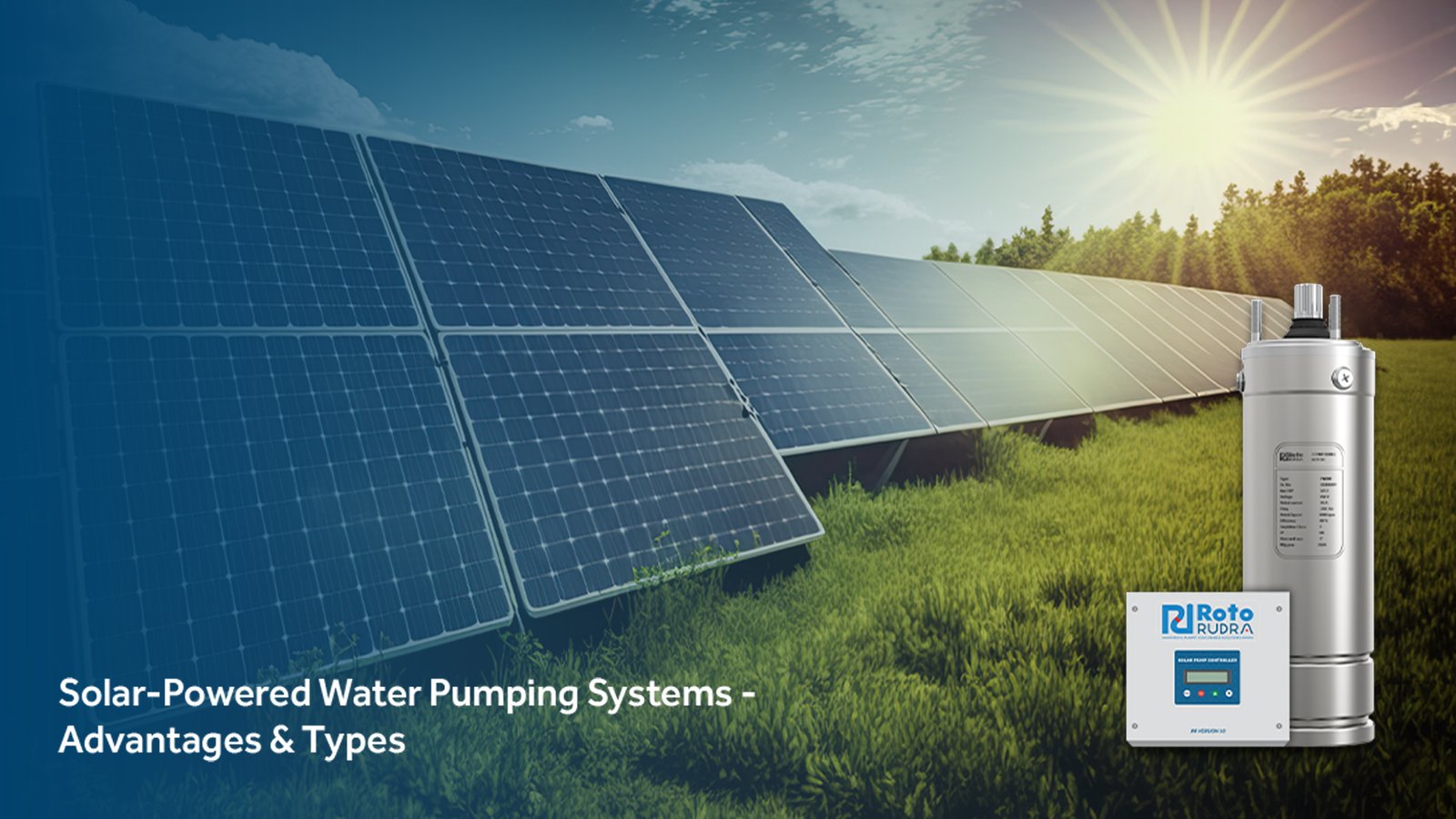Solar-powered water pumping systems are becoming an increasingly popular choice for agricultural and rural applications. By harnessing solar energy, these systems offer a sustainable, cost-effective, and environmentally friendly alternative to traditional water pumps. In this blog, we’ll explore the advantages of solar-powered water pumping systems and the different types available, highlighting why they are a smart investment for irrigation, livestock watering, and more.
What Are Solar-Powered Water Pumping Systems?
Solar-powered water pumping systems use solar panels to capture sunlight and convert it into electrical energy. This energy powers a motor that drives the pump, enabling water to be drawn from sources like wells, rivers, or reservoirs. These systems work efficiently in areas with abundant sunlight, making them ideal for remote locations with limited access to traditional power sources.
Advantages of Solar-Powered Water Pumping Systems
1. Environmentally Friendly
One of the biggest advantages of solar-powered systems is their minimal environmental impact. By using renewable energy, these pumps produce no emissions, helping reduce greenhouse gasses and support sustainability goals. They offer a cleaner alternative to fuel-based or electric pumps that rely on non-renewable energy sources.
2. Cost-Effective
Though the initial investment may be higher, solar-powered water pumps are cost-effective in the long run. Solar energy is free, and with no need for fuel, these systems lower operational costs significantly over time. This is especially beneficial in areas where fuel or electricity is expensive or hard to access.
3. Low Maintenance
Solar-powered pumps have fewer moving parts than traditional pumps, meaning they require less maintenance. With durable solar panels and simple design, these systems can last for years with minimal upkeep, reducing repair costs and ensuring a more consistent water supply.
4. Reliable Water Supply
Since solar-powered systems rely on sunlight, they offer a reliable water supply, especially in areas with inconsistent electricity. Modern systems even come with battery storage options to ensure continuous operation during cloudy days or at night, making them ideal for agricultural and rural applications.
Types of Solar-Powered Water Pumping Systems
1. Surface Solar Pumps
Surface pumps are installed above water sources such as lakes or shallow wells. These pumps draw water from shallow areas and are commonly used for irrigation and livestock watering. They are easy to install and ideal for locations where water sources are near the surface.
Best for: Shallow water sources and low-pressure applications.
2. Submersible Solar Pumps
Submersible pumps are designed to be placed deep underwater in wells or reservoirs. These pumps are more powerful and can draw water from deep sources, making them perfect for areas where water is far beneath the surface. Submersible solar pumps are widely used for deep well irrigation and potable water supply.
Best for: Deep wells and high-pressure water needs.
Why Switch to Solar-Powered Water Pumps?
Switching to solar-powered water pumps can transform the way you manage water supply, offering a sustainable and cost-effective solution. These systems are especially useful for farmers, livestock owners, and rural communities that rely on water for irrigation, drinking, and other essential tasks. With lower operational costs, less maintenance, and eco-friendly benefits, solar-powered systems are paving the way for a greener future.
Conclusion
Solar-powered water pumping systems are a forward-thinking solution for water management. Whether you’re drawing water for crops or livestock, the benefits of reduced costs, reliable performance, and sustainability make these systems an excellent choice.
For efficient and high-quality solar-powered water pumping systems, Roto Energy offers tailored solutions designed to meet the specific needs of agricultural and rural settings. Take a step toward sustainable energy and reliable water supply by choosing solar-powered solutions.

